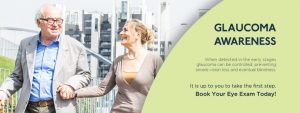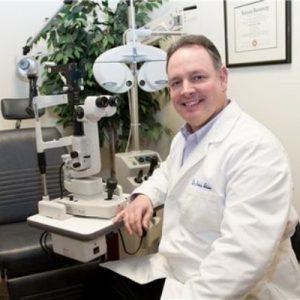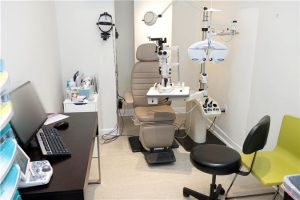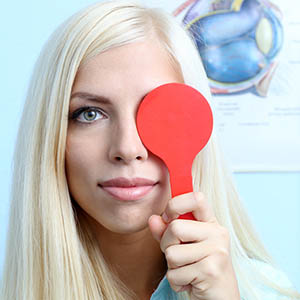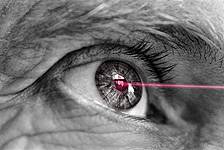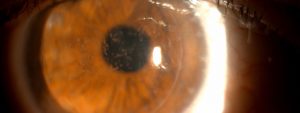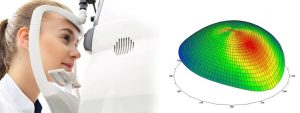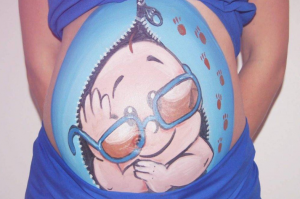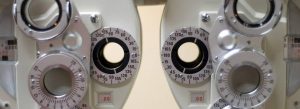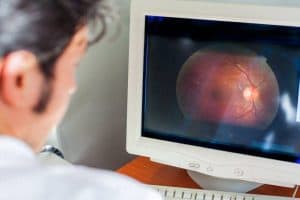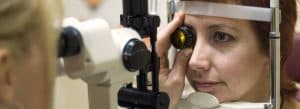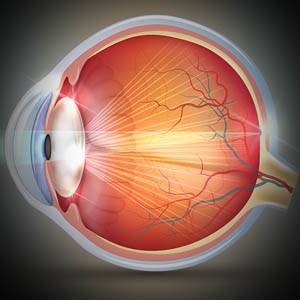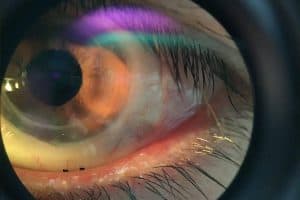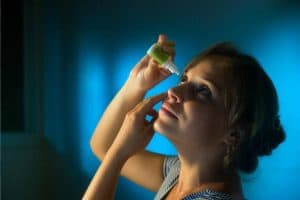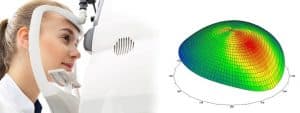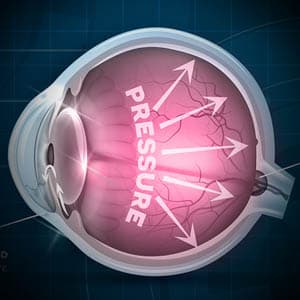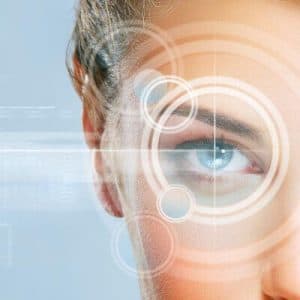How to Protect Your Eyes From Halloween Makeup
Halloween costumes are notorious for heavy makeup and face paint, but did you know that costume makeup contains chemicals and additives that can be potentially
Read More2021 Update: Lazy Eye and Adults
Lazy eye is estimated to affect up to 5% of all adults. For many decades, it has been thought that only children under the age
Read MoreGlaucoma: ‘The Silent Thief of Sight’
Did you know that rock star Bono from U2 has glaucoma? U2’s Bono is not alone, at least 3 million North Americans have glaucoma, but only 50% know they have it! In 95% of glaucoma cases, it starts off asymptomatic and by the time the condition is noticed, the vision loss is irreversible. That’s why regular eye exams are so crucial, even if you don’t suspect a problem.
Read MoreCataracts: Top 5 Myths and Facts
Have you been told you have cataracts, but not sure about the myths and facts? Here are the top 5 myths and facts about cataracts.
Read MoreSmoking and Glaucoma
We all know smoking impacts our general health, but did you know it can also affect the eyes? More than 1 billion people worldwide smoke
Read MoreIs Binocular Vision Important for Sports?
Binocular vision is important for athletes, as it impacts their performance. An athlete can improve their visual skills and boost their performance on the field with the help of sports vision training. Binocular vision is the eyes’ ability to focus on an object to create a single image, this is critical for achieving on the sports field.
Read MoreWhy Are Eye Exams Important?
Are Eye Exams Important? Yes! Many eye conditions, in their early stages, have no obvious signs or symptoms, so the annual exam is often the only way to detect eye conditions early. Since there are often no signs or symptoms, regular comprehensive eye exams are key to maintaining good vision and healthy eyes.
Read MoreWhat Are the Signs You Need Vision Therapy?
Are you concerned with your performance at school, work, or sports? Strengthening the visual skills boosts your ability to focus, read, concentrate and all other aspects required for work performance. Vision therapy is a customized, personalized treatment program designed to strengthen and improve visual skills, resulting in enhanced reading, learning, attention and the overall school performances.
Read MoreCould Eye Strain Impact your Work Performance?
Do you feel your work performance is impacted by tiredness, headaches or eye strain?
Vision therapy may just be the solution you have been searching for.
Vision therapy is an effective customized program that can deliver clearer and more comfortable vision. Vision therapy has been clinically proven to be effective for adults too.
Glaucoma: Myths and Facts
Do you want the facts on the most common glaucoma myths? More than three million Americans are living with glaucoma, 2.7 million are aged 40 and older.
Read MoreGlaucoma: Can Meditation Help?
Could meditation be the next glaucoma ‘wonder drug’? Can adding meditation to your day help manage your glaucoma? What is Glaucoma? Glaucoma is a common
Read MoreWhat is Binocular Visual Dysfunction (BVD)?
Up to 20% of the world’s population suffers from Binocular Visual Dysfunction (BVD). If you experience headaches, blurred vision, anxiety, balance problems, and dizziness making simple everyday tasks difficult, you may have this common visual problem.
Read MoreContact Lenses or Laser Eye Surgery?
Tired of wearing your glasses everyday? If you wear corrective lenses for nearsightedness, farsightedness or astigmatism, you may be wondering about the advantages that contact lenses and laser eye surgery have to offer. Contact lenses are a great solution if you would like to be free of your glasses, but laser eye surgery, also called laser refractive surgery, can help to eliminate the need for corrective eye wear altogether.
Read MoreTinted Lenses for Color Blindness
An estimated 1 in 12 men and 1 in 200 women has some degree of color blindness. Color blindness is not an actual blindness, but
Read MoreBurning Eyes at Night
If your eyes are burning at night, you may be suffering from dry eye syndrome. Dry eye syndrome can put a damper on your day
Read MoreWhy Am I Seeing Halos?
Seeing halos around lights can be a cause for concern, or it can be completely normal. If you notice a sudden appearance of halos or
Read MoreThe Larry Fitzgerald Story
Have you heard of NFL star Arizona Cardinals wide receiver, Larry Fitzgerald?
He is the second most career leading receiver for total TDs, yards, catches and more, after the legendary Jerry Rice. Larry credits his success on the field to a customized vision therapy program.
Vision for Rock Climbing
Rock climbing is a sport that requires physical strength, endurance, and balance … and visual skills Did you know that to be a successful climber,
Read MoreMeniere’s Disease
Meniere’s disease affects 2 in 1000 adults and over 45,000 new cases are diagnosed each year. What is Meniere’s disease? Meniere’s disease is an inner
Read MoreResearch Reveals New Effective Treatment for Adults with Lazy Eye
Amblyopia, also known as “lazy eye”, is a vision problem that affects both children and adults. Lazy eye typically begins in childhood and causes a
Read MoreIs “20/20” Perfect Sight?
Author: Dr. Denise Smith The Center for Vision Development, Austin TX 20/20 vision is not ‘perfect sight’ Most people don’t think about vision until they
Read MoreCorneal Transplant (Keratoplasty)
More than 44,000 corneal transplants are performed in the United States each year. The cornea is the outermost layer of the eye that is responsible
Read MoreEyelid Inflammation: Chalazion
What is a chalazion? A chalazion is a lump that forms under the skin of the eyelid. It can develop when the meibomian gland becomes
Read MoreCorneal Ulcers
What is a corneal ulcer? The cornea is the translucent, outermost layer of the eye that covers the pupil and iris. The cornea plays a
Read MoreKeratoconus Treatment: Corneal Cross-linking
Keratoconus is a progressive eye disease that weakens the cornea and changes its structure — leading to vision problems and even vision loss. The cornea
Read MorePregnancy Complications: When to See an Eye Doctor
How do pregnancy complications affect the eyes? Pregnancy is a time filled with lots of excitement and emotions— but pregnancy can also have an impact
Read MoreCan Pregnancy Affect Vision?
Most moms-to-be are well aware of the bodily changes that remind you on a daily basis that you are expecting— the most common being: morning sickness, food aversions, heightened sense of smell, swollen ankles, headaches, exhaustion, and many other uncomfortable yet normal pregnancy symptoms. What you may not know is that these physiological changes that take place during pregnancy can also lead to changes in your eyes and vision.
Read MorePtosis: Why Is My Eyelid Drooping?
What is ptosis? Ptosis, commonly referred to as a droopy eyelid, occurs when the upper eyelid droops down over the eye. A droopy eyelid can
Read MoreWhat Is an Eye Stroke?
A retinal blood vessel occlusion, commonly referred to as an ‘eye stroke’ occurs when the blood vessels in the eye become narrowed or blocked. The
Read MoreHow Can a Developmental Optometrist Help?
Developmental optometrists believe that vision can be developed and improved through a learned process. A developmental optometrist, also called a behavioral optometrist, focuses on the
Read MoreWhy Does Diabetes Cause Blurry Vision?
If you have diabetes, high blood sugar levels may be the cause of your blurry vision. Blurred vision, or any changes to your vision can be quite concerning. But before you panic, understand that blurry vision is commonly associated with diabetes and can sometimes just be a temporary problem.
Read MoreAre You at Risk for Diabetic Eye Damage?
An estimated 30 million Americans have diabetes, and approximately 25 to 45 percent of them will develop some form of diabetic eye damage. According to
Read MoreA Deeper Understanding of Diabetic Retinopathy
Diabetic retinopathy is the leading cause of vision loss among people with diabetes. If you have been diagnosed with diabetes, it is critical to ensure
Read MoreConcussion and Vision
Author: Dr. Aaron Nichols Excel Neuro-Optometric Clinic The term concussion has become increasingly popular in the last several decades. The research behind the causes and
Read MoreOn the Long Road to Recovery: Motion Sickness and TBI
Author: Dr. Aaron Nichols Excel Neuro-Optometric Clinic Do you experience motion sickness while driving a car or motorcycle, or riding as a passenger? Motion sickness
Read MoreLighting Up the Room: Light Sensitivity Post-TBI
Author: Dr. Aaron Nichols Excel Neuro-Optometric Clinic Are you experiencing light sensitivity since your traumatic brain injury? Following a traumatic brain injury (TBI) there are
Read MoreHow Is My Optical Prescription Measured?
Whether you are visiting your eye doctor for your annual checkup, or have noticed that your vision is not as sharp as it used to
Read MoreVision Therapy for Adults: Success Stories
Personal stories from adults whose lives have been enhanced with Vision Therapy.
*Names have been changed for privacy protection
Can Adults Have Convergence Insufficiency?
Convergence insufficiency (CI) is a common vision condition that affects up to 17 percent of children and adults. While CI is generally diagnosed in children
Read MoreDouble Vision (Diplopia)
Each year, approximately 850,000 visits to the doctor and emergency room are associated with double vision. Double vision, medically termed diplopia, can be very worrisome.
Read MoreWet Macular Degeneration (AMD)
Wet AMD accounts for approximately 10 percent of all AMD cases, but is responsible for 90 percent of legal blindness. Wet AMD develops as a result of abnormal blood vessels that form under the retina, and leak blood and fluid into the macula. Wet AMD is the more advanced stage of AMD, with dry AMD usually preceding it.
Read MoreProtecting Yourself From Macular Degeneration
Macular degeneration (AMD) is one of the leading causes of blindness in adults over the age of 50. Follow these 8 tips to prevent AMD and protect your ocular health and eyesight.
Read MoreWhat Is a Diabetic Eye Exam?
If you have been diagnosed with diabetes, annual eye exams will help to protect your eyes from serious sight-threatening eye diseases, linked to diabetes. Diabetes is a condition that prevents the body from using and storing sugar properly. As a result, excessive amounts of sugar remain in the bloodstream and if uncontrolled, can cause damage to the tiny blood vessels all over the body, including those in your eyes.
Read MoreAmsler Grid Test: Screening for AMD
Early detection of eye disease is crucial when it comes to protecting your eye health and vision. Macular degeneration (AMD) is the number one cause
Read MoreDry Macular Degeneration (AMD)
Dry AMD accounts for 80-90 percent of all AMD cases. Macular degeneration, also known as age-related macular degeneration (AMD), is an eye disease that occurs as a result of permanent damage to the macula, the center of the retina. Dry AMD causes loss of central vision and the ability to see fine details
Read MoreHow Do Anti-VEGF Injections Work?
What is VEGF? Vascular endothelial growth factor (VEGF) is a protein in your body that stimulates the growth of new blood vessels needed for healing—
Read MoreNormal Tension Glaucoma
What is normal tension glaucoma (NTG)? Glaucoma is the name for a group of ocular diseases that occur as a result of: High eye pressure
Read MoreGlaucoma FAQs
The top 12 glaucoma questions asked by patients to their eye doctors.
Read MoreWhat Is Open Angle Glaucoma?
Open-angle glaucoma accounts for more than 80% of all glaucoma cases. Open angle glaucoma (OAG) is the most common form of glaucoma that usually progresses
Read MoreWhat Is Angle Closure Glaucoma?
Angle closure glaucoma is a rare, but serious form of glaucoma that requires immediate medical attention. Closed angle glaucoma develops as a result of a
Read MoreDiabetic Macular Edema
Diabetic macular edema occurs when damaged blood vessels from the retina leak fluid into the macula, the center of the retina. Diabetic macular edema causes the macula to swell and thicken, resulting in distorted vision.
Read MoreCan I Prevent Glaucoma?
Catch the ‘Silent Thief of Sight’ before it catches you! The most reliable way to prevent vision loss from glaucoma is by visiting your eye doctor for regular eye exams. While preventing glaucoma altogether is not yet possible, early detection of the disease can help to preserve your vision, and reduce vision loss. Your eye doctor can identify signs of glaucoma, even in its early stages, and then recommend effective treatments to stop or even reduce its progression.
Read MoreWhen Should I Have Cataract Surgery?
Over 50% of all adults will begin to develop a cataract by the time they reach 60. When cataracts first develop, you may not even notice any changes to your vision. However, as cataracts worsen, the clouding effects on your eye’s lens increases in severity, and blurry or distorted vision will begin to affect your performance of daily activities
Read MoreWill Cataract Surgery Give Me 20/20 Vision?
How does cataract surgery help to improve vision? As cataracts develop and cloud the eye’s natural lens, significant visual distortions begin to impact the ability
Read MoreMacular Diseases
Macular disease occurs when the macular cells become damaged or destroyed, causing a gradual loss of central vision. The best way to understand the effects of macular disease is to imagine taking a black marker and drawing all over the center of a photograph— preventing the ability to see faces, objects, and anything else that is right in front of you.
Read MoreDoes Dyslexia Affect Adults?
Recent data shows that 1 in 10 adults have dyslexia and adults with dyslexia typically experience many challenges in the workplace and many adults also have low self esteem as a result of their dyslexia. Vision therapy has been shown to lead to improved reading, writing, and spelling. Vision therapy could be the solution you have been lookin for.
Read MoreCorneal Dystrophies
Corneal conditions can permantly impact your vision. The cornea is the clear, protective outer layer of the eye. It’s primary function is to act as
Read MoreHow Is Glaucoma Treated?
Unfortunately, a cure for glaucoma and the ability to reverse it’s damage to the eye has yet to be discovered. However, there are treatments available to help stop, or at least reduce, the progression of the disease by lowering or controlling IOP.
Read MoreDigital Eye Strain
Digital eye strain (DES), also known as computer vision syndrome (CVS) affects over 50 percent of people, including both children and adults. Symptoms fall into two main categories: those linked to accommodative or binocular vision stress, and external symptoms linked to dry eye.
Read MoreBlue Light and Screens
Over exposure to high energy visible (HEV) blue light may be harmful to your health, and has become a rising concern among eye care professionals.
Read MoreWhat Are Contact Lenses?
Contact lenses are designed to cover the cornea, the clear covering of the eye. They stay in place by adhering to the tear film of the eye, and through the pressure from the eyelids. When you blink, your eyelid glides over the contact lens, enabling a cleansing and lubricating action to keep the contact lens comfortable on the cornea.
Read MoreWhat is Myopia Management?
Myopia management has shown to decrease myopia progression by up to 78%. Myopia management is a treatment program to keep the level of myopia as low as possible, and reduce your risk of developing a serious sight-threatening eye disease. Myopia management can involve the use of eyeglasses, contact lenses, and eye drops— all scientifically proven to aid in the control of myopia progression.
Read MoreVision Therapy for Adults
Vision therapy is a proven and effective solution for adults as well as children.
Do you feel like your work performance is impacted by headaches or eye strain?
Are you finding it stressful to meet deadlines?
Vision therapy is a remarkably effective program that improves vision skills to achieve more comfortable vision for reading and computer use – enhancing your workplace productivity.
Corneal Diseases
What is the cornea? The cornea is the clear, protective outer layer of the eye. It acts as a barrier and filter— protecting our eyes
Read MoreWhat is Low Vision?
Do you or a loved one have low vision? Low vision is diagnosed when vision cannot be fully corrected with glasses, contact lenses, or eye surgery— allowing you to participate in every day activities. It is often accompanied by blurred vision, blind spots or tunnel vision— and may also be called legal blindness. Low vision may prevent you from driving, watching TV, reading, using a computer or participating in your favorite hobbies.
Read MoreWhat is Laser Refractive Surgery?
Are you thinking of having laser eye surgery? Laser eye surgery, also called laser refractive surgery, is a common procedure that is performed to eliminate the need for eye wear— both glasses and contact lenses. Up to 98 percent of patients achieve 20/20 vision with laser eye surgery.
Read MoreGuide to Bifocals and Multifocals
Have you noticed the need to hold your phone, books or restaurant menus farther from your eyes to improve their clarity? Presbyopia is the most common reason most adults begin to wear eyeglasses. The condition generally develops overtime, beginning at around age 40, and is considered a normal part of the aging process.
Read MoreWhat is Glaucoma?
Have you been diagnosed with Glaucoma? Glaucoma is a progressive ocular disease that causes vision loss from damage to the optic nerve, which is responsible for carrying visual signals between the eye and brain.
Read MoreEyes and Nutrition
How does nutrition impact ocular health? A balanced diet should provide all the nutrients required for optimum eye health. Nutrients are vital for healthy eyes. Many nutrients help to support eye function, and serve as protection against harmful light. In this way, nutrients may reduce the risk of age-related degenerative ocular diseases that can put your vision in danger.
Read MoreWhat is Macular Degeneration?
Have you been diagnosed with macular degeneration? Macular degeneration (AMD) is an ocular disease caused by deterioration of the macula, the center of the retina that controls your visual acuity. Macular degeneration accounts for 8.7 percent of all blindness worldwide, and is one of the leading causes of blindness in adults over the age of 60.
Read MoreWhat Are Cataracts?
A cataract is the clouding of the eye’s focusing lens, causing blurry vision and vision loss. This condition is painless and usually develops gradually over time. It is the most common cause of vision loss in people over the age of 45.
Read MoreEssential Vision Skills for College Students
Strong visual skills are essential for academic success in college
College students have significantly high demands on their visual systems— and the integrity of their visual skills are critical for their success in their studies. Colleges and universities are known for their large lecture halls and seemingly endless amount of requirements. The great amount of studies that are involved in fulfilling these requirements lead to many hours of reading textbooks, studying, and using computers – all requiring excellent visual skills.
Read MoreVision and Vestibular Dysfunction
Do you often experience dizziness or feel as though the world is spinning around you (vertigo)?
Do you experience motion sickness, or a persistent sense of unsteadiness or imbalance? You may have an inner ear disturbance called Vestibular Dysfunction. The good news is that these symptoms can be significantly reduced with vision therapy, allowing you to regain your quality of life.
Vision Problems from a Brain Injury
Can a brain injury cause vision problems? Yes, any traumatic brain injury (TBI) can have significant visual consequences. During the initial treatment of a concussion or other traumatic brain injury (TBI), visual problems are often overlooked. Frequently, visual problems are hidden or neglected— lengthening and impacting rehabilitation.
Read MoreVision Therapy for TBI Related Vision Conditions
How does a TBI affect vision? Vision is the most important source of sensory information. Consisting of a sophisticated complex of subsystems, the visual process
Read MoreCommon Vision Problems Associated With a Brain Injury
Over 10 million traumatic brain injuries (TBI) occur annually, worldwide. Approximately 2.8 million, close to 1 in 100, Americans suffer a form of TBI every
Read MoreVision Therapy for Traumatic Brain Injuries: Success Stories
Below are stories from children and adults who have suffered a traumatic brain injury (TBI) and their experiences with Vision Therapy. *Names have been altered
Read MorePost Trauma Vision Syndrome
A Guide to Post Trauma Vision Syndrome Author: Dr. Allen Cohen OD, FCOVD Dr. Cohen is currently Clinical Professor of Optometry, SUNY State College of
Read MoreVision, Dizziness and Imbalance
Many people experience dizziness or balance issues following a mild concussion or other traumatic brain injury (TBI). Dizziness or imbalance can be caused by a
Read MoreVision and Brain Injuries
Can the eyes and visual system be affected by a brain injury? Yes, Traumatic brain injury (TBI) can result in significant vision problems, unfortunately these often remain undiagnosed for years, dramatically impacting the quality of life.
Read More5 Essential Facts About Traumatic Brain Injuries
Have you suffered a brain injury? Here are 5 facts that are essential to know: A traumatic brain injury (TBI) is an injury to the
Read MoreHow Does a Traumatic Brain Injury Cause Vision Problems?
Brain injuries can lead to vision problems, especially in children. We often think of a Traumatic Brain Injury (TBI) affecting adults, however consider these facts:
Read MoreDigital Eye Strain: Myths and Facts
Digital eye strain (DES), also known as computer vision syndrome (CVS) affects over 50 percent of people, including both children and adults. In recent years,
Read MorePrimary Eye Care
Home > Primary Eye Care Primary Eye Care Why are regular eye exams important? Can eye disease be prevented? What are the signs and symptoms
Read More

